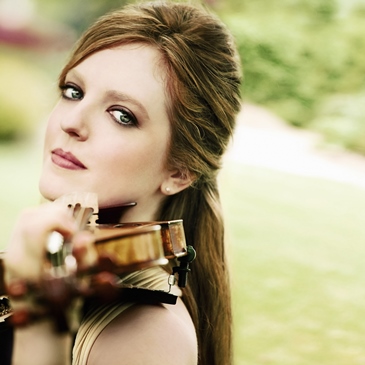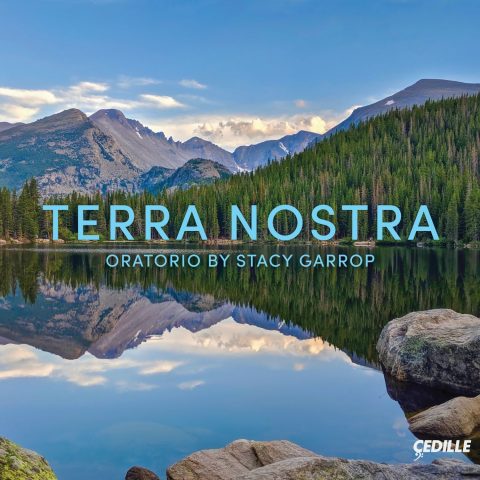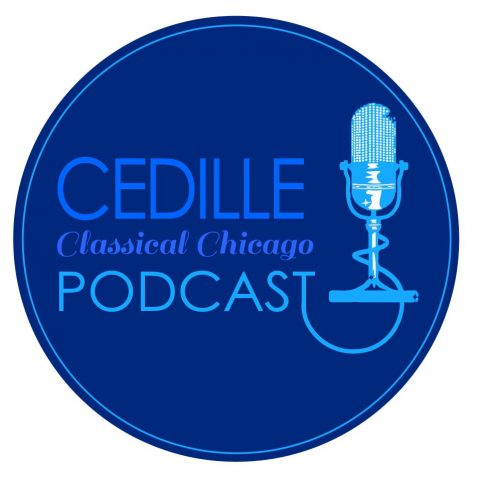
Discover
Take 5: Rachel Barton Pine

In this edition of Take 5, we’re shining a spotlight on world-renowned violin soloist and longtime Cedille recording artist Rachel Barton Pine. Celebrated as a leading interpreter of classical works, her performances and studio recordings combine her innate gift for emotional communication and her scholarly fascination with historical research. Rachel’s next Cedille release, J.S. Bach: The Sonatas for Violin & Harpsichord, explores Bach’s accompanied violin sonatas as trio sonatas with equally important roles for the violin and the harpsichord’s treble and bass lines. Along with harpsichordist Jory Vinikour, the album sets a new standard for a body of work that Bach’s son, C.P.E., considered among his father’s finest compositions (available now for pre-order; all CDs and downloads ship May 11).
If you weren’t a musician, what would you be?
I’d be someone else … playing music isn’t what I do, it’s who I am. It would be impossible to say who I’d be if I wasn’t me! I like how these days, artists are encouraged to think of their careers in terms of a portfolio of activities. My primary activities are as a concerto soloist, recitalist, and recording artist – but I’m also a chamber musician, early music performer, author of sheet music books, speaker, master class teacher, clinician, adjudicator, teaching artist, board member, foundation president, arts advocate, program note writer, Scottish fiddler, occasional heavy metal violinist, and daily practicing parent to my little girl. Previously, I have also been a studio teacher and festival director.
What is your most recent project and what sparked your interest in it?
2018 is a very exciting year because my RBP Foundation is going to publish the first volume of our Music by Black Composers (MBC) curriculum for violin. After I released my 1997 Cedille album Violin Concertos by Black Composers of the 18th and 19th Centuries, I started getting continual requests from students, parents, and teachers for music suitable for younger violinists. Sadly, most of this wonderful repertoire is out of print or only in manuscript. Young classical musicians seldom, if ever, have the opportunity to study and perform music written by Black composers.
After I started the RBP Foundation in 2001, I decided to address this problem through our MBC project MBC will supplement the current instrumental training methods by publishing books of music exclusively by Black composers from around the world. We have spent 15 years gathering more than 900 works by more than 250 Black composers, drawing from North America, Latin America, the Caribbean, Africa, and Europe, spanning the 18th-21st Centuries. The MBC materials include graded repertoire for beginning through advanced students, composer biographies, profiles of important professional Black classical musicians, and articles about the history of Black participation in classical music. We are even developing a coloring book of the 40 most prominent Black composers, a timeline poster, and a database of repertoire for professional artists.
My next Cedille album, Blues Dialogues: Violin Works by Black Composers, features some of my favorite repertoire from this collection. For more information, please visit www.musicbyblackcomposers.org.
Was there a formative moment for you as an artist?
One of the best things about being a musician is that you never stop learning and growing. I’ve had many formative moments along the way. My first encounter with the violin in church when I was three, an inspiring outreach concert I played as a five-year old that convinced me that being a violinist was my calling, my first experience soloing with an orchestra, and my debut with the Chicago Symphony under the baton of Erich Leinsdorf at age 10 (such a thrill that I drastically increased my practice intensity) come immediately to mind. But I continue to have formative moments all the time, as I collaborate with other artists, read about music history and performance practice, learn new repertoire, and even watch my daughter’s music teachers.
What album/band are you listening to right now?
Slayer, one of my favorite thrash metal bands, is giving its final farewell tour. I’m looking forward to going with four electric violinist friends from New York and Chicago who all also love metal! It’s going to be an incredible lineup with Lamb of God, Anthrax, Behemoth, and Testament. So right now, I’m prepping for the show by listening to my favorite albums by those bands, especially Slayer’s Reign in Blood.
What makes the Chicago classical music scene unique?
There is such an incredible variety of the highest-level music-making happening in town, from early music to contemporary music, from chamber music to symphony and opera, and so many other styles from folk music to blues to metal. It is a very friendly, collaborative, supportive environment. So often, sophistication seems to go hand in hand with competitiveness, but not in Chicago!
Recommended
In celebration of Earth Day, Cedille Records releases the world premiere recording of Stacy Garrop’s monumental oratorio Terra Nostra, “a spellbinding dive into the history of the planet” (Chicago Classical Review). Terra Nostra explores the relationship between humanity and Earth, and how humankind can re-establish a harmonious balance.
In anticipation of the Earth Day (April 22) release of Stacy Garrop‘s oratorio Terra Nostra, a playlist of pieces about our planet, its scenic places, creatures, natural resources, seasons, etc. Tracks from Terra Nostra will be added upon its 4/22 release.
Enjoy 25% off of Cedille’s Featured Release.
On this episode of Classical Chicago, Cedille President Jim Ginsburg talks with celebrated composer Stacy Garrop about her experience composing and recording Cedille’s latest release, Terra Nostra. The multifarious text weaves together creation myths from India, North America, and Egypt, excerpts from the Bible’s Old Testament, classic poetry from Walt Whitman, Lord Byron, Lord Alfred Tennyson, Edna St. Vincent Millay, and contemporary writings by Esther Iverem and Wendell Berry, among others.



